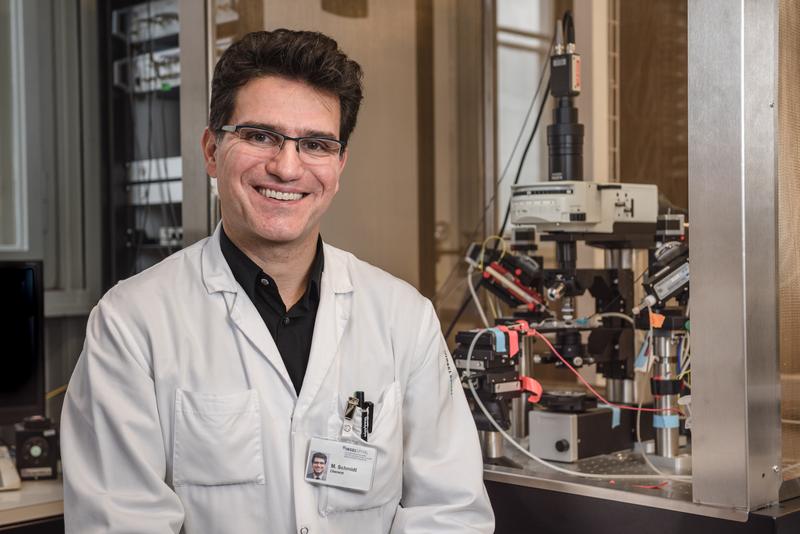

Markus Schmidt studies sleep-wake-mechanisms at the Centre for Experimental Neurology, Inselspital
Inselspital, Bern University Hospital
It is one of the last great mysteries of science: Why do we sleep? Since all animals sleep, some biologists suggest that it is to save energy by reducing our metabolic rate. Many scientists, however, say that this theory does not hold since the amount of energy saved by reducing metabolic rate during sleep is actually very small.
A team of researchers from Inselspital, Bern University Hospital, and Ohio State University, USA, report important new findings on this question. Using a bio-mathematical approach, they have discovered the «sleep code».
«We wanted to find out, how much energy sleep potentially saves, compared to an alternative strategy of no sleep. This study, however, led us to a major discovery,» says Dr. Markus Schmidt from the Centre for Experimental Neurology at Inselspital.
Many biological processes such as the immune system, memory consolidation or (neuro) cell regeneration increase their activity during sleep – at first glance contradicting any energy savings whatsoever. To measure the energy saving rate in sleep, he and his team developed a mathematical model. What they found was a new mechanism for energy conservation in the human body.
The sleep code
The key to the enigma was found in so-called sleep-wake metabolic partitioning: «During sleep and wakefulness biological processes are dynamically partitioned chronologically and spatially,» Markus Schmidt explains.
«The metabolic rate reduction meanwhile only saves approximately 7-8 percent of our daily energy. Through sleep-wake metabolic partitioning, however, this figure goes up to 37 percent. We therefore believe that we have discovered the essential energy-saving mechanism of sleep.»
Additional factors to promote energy savings during sleep are the individual’s own internal circadian clock and the total sleep duration, according to the research team. The partitioning mechanism also explains why chronic sleep deprivation – as caused by sleep disorders or stress – has such negative consequences on our health. «When we lack sleep, important sleep-related functions cannot be completed. The results are numerous and range from difficulties in concentration to an elevated cancer risk,» says Markus Schmidt.
The study results were published in the open access journal PLOS One in October.
Sleep medicine and sleep research at Inselspital Bern
At Inselspital, Bern University Hospital, sleep medicine and research have a long tradition: In 1952, Prof. Robert Isenschmid carried out the first recordings during sleep in the electroencephalography (EEG) unit. This marks the start of modern sleep studies in Bern. Today, disorders of sleep, wakefulness, consciousness and epilepsy are diagnosed and treated as well as researched and taught in the University Sleep-Wake-Epilepsy-Centre (SWEZ) under Prof. Dr. med. Claudio Bassetti, Chairman and Head of the Department of Neurology.
With currently six ongoing Swiss National Science Foundation studies, the SWEZ is highly committed to research. It actively works interdisciplinary and translationally, using clinical, system-physiological, experimental (Centre for Experimental Neurology, ZEN) and technological (sitem-insel Neuro) approaches.
The SWEZ is part of the Bern Network for Epilepsy, Sleep and Consciousness (BENESCO), which promotes cooperation in research, teaching and clinical practice with other disciplinary related Swiss centers.
Contact:
Dr. med. Markus Schmidt, Attending Specialist, University Sleep-Wake-Epilepsy-Centre Bern, research group head Centre for Experimental Neurology, Department of Neurology, Inselspital, Bern University Hospital, Markus.Schmidt@insel.ch
http://journals.plos.org/plosone/article?id=10.1371/journal.pone.0185746












